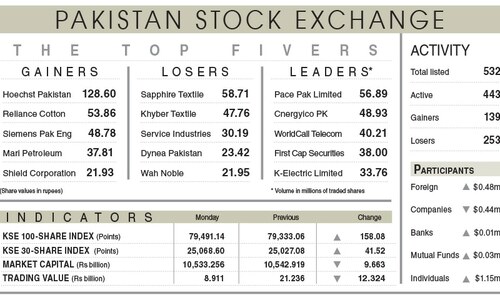 For the first time in two decades, Britain finds itself in the grip of recession and its overall growth trails Germany, Spain and Nether-lands while at the same time edging out France and Germany.
For the first time in two decades, Britain finds itself in the grip of recession and its overall growth trails Germany, Spain and Nether-lands while at the same time edging out France and Germany.
The European Commission (EC) has predicted that the UK economy will contract this quarter and for the final three months of the year as it slashed Britain’s annual growth estimates to 1.1 from 1.7 per cent and forecast the output to shrink by 0.2 per cent.
The EC holds the reversals in housing market responsible for the gloomy forecast. House prices are expected to fall by as much as 25 per cent from their peak and few see any sign of recovery until 2010 at the soonest.
Analysts have estimated that about 2.5 million homeowners would slip into negative equity if these estimates are correct.
The EC forecast comes in the week following a report by the Organisation for Economic Cooperation and Development (OECD), which also predicted Britain would slide into recession in the second half of this year.
The OECD report said the economy could contract by as much as 1.2 per cent in the third and fourth quarters.
The latest figures are likely to increase pressure on the Bank of England to cut interest rates in an attempt to stimulate the economy but cautious members of the bank’s Monetary Policy Committee (MPC) are likely to continue to argue that to do so would be reckless at a time of 4.4 per cent inflation - a 16-year high.
However, the slippages seen in the world oil prices may after all provide the MPC the space to take the risk of cutting the interest rate by at least half a percentage point when it meets next.
Expectations that the falling pound would help boost exports and thereby halt the recessionary trends have also proved misplaced as there was no significant improvement in the export income in recent weeks.
The Office for National Statistics (ONS) said midway through last week that the UK’s goods trade deficit narrowed from a revised £8 billion in June to £7.7 billion in July. In the three months to July it had widened to £23.2 billion, compared with £22.8bn in the three months to April.
Economists expect net trade to make a positive contribution to GDP growth over the next year, helping to offset the slowdown in the domestic economy, once exporters start to take advantage of the recent depreciation in sterling. But gains may be limited by weaker demand in the eurozone - the UK’s main export market.
The ONS said goods export values rose three per cent to £22.5 billion in July, set against a one per cent rise in goods imports. But almost all that growth came from trade with non-EU countries, while exports to the EU rose just 0.5 per cent.
Adding to the overall gloom and not very hopeful signs on the export front was the latest ONS report on UK industrial output in the three months to July. The ONS estimates showed that the output fell by 1.1 per cent compared with the level of the previous three months.Manufacturing output fell by 0.2 per cent between June and July.
In the latest three months, manufacturing output decreased by 1.1 per cent, with drops noted in mining and quarrying, and electricity, gas and water of 0.6 and 1.3 per cent respectively.
Mining and quarrying stood 0.7 per cent below that of a year ago. Between June and July alone, mining and quarrying output decreased by 3.8 per cent, with falls in oil and gas production.
Within manufacturing, there were widespread decreases in output in the three months to July. Output in the food, drink and tobacco industries fell by 2.4 while that of the electrical and optical industries fell 2.9 per cent.
Manufacturing output in “other” industries fell by 4.2 per cent. Between June and July, “other” manufacturing, which accounts for around 23 per cent of the Index, fell by 1.7 per cent.
Within industrial categories, oil and and gas extraction, which accounts for slightly more than 10 per cent of the Index, stood at roughly two-thirds of its 2003 level. Year on year, it is 2.5 per cent lower.
Meanwhile, the OECD has warned Britain that policies that curb migrant numbers by giving preference to skilled workers are short-sighted and inefficient. The Paris-based think tank for rich countries said government efforts to erect barriers to lower skilled foreigners also risk increasing illegal immigration.
Incidently, only a day before the OECD warning was issued, Britain unveiled a list of skills it wants to attract, such as civil engineers, while closing the door to non-EU migrants working in areas such as care homes and the health service.
The UK Home Office also proposes limiting entry to some categories of teachers, social workers, most skilled construction workers, IT specialists and architects.
British care homes have warned that fees will have to rise sharply and some homes may have to close if they are unable to recruit cheap labour from non-EU countries.
The OECD, in its latest outlook for international migration, warned that concentrating immigration policies on attracting higher skilled workers and ignoring other staffing needs could rebound as populations in developed countries age, causing serious recruitment problems.
While Britain is all set to curb low skilled workers from foreign countries, its own best and the rishest working in the financial sector are making a beeline for greener pastures in foreign lands mostly in Asia and particularly the Gulf, Middle East and India.
Giving reasons for such steep outflow of skilled Britons, The Economist in its latest edition said: “London is uncomfortable and expensive. A £30,000 ($53,000) flat tax on foreign residents and a rise in capital-gains tax has hit the whizz kids in the pocket.
Lay-offs at shrinking banks—35,000 have been announced and up to 100,000 are expected—have depressed job and bonus prospects. The golden days, when adding complexity to financial products brought immediate reward, are over.”















































Dear visitor, the comments section is undergoing an overhaul and will return soon.